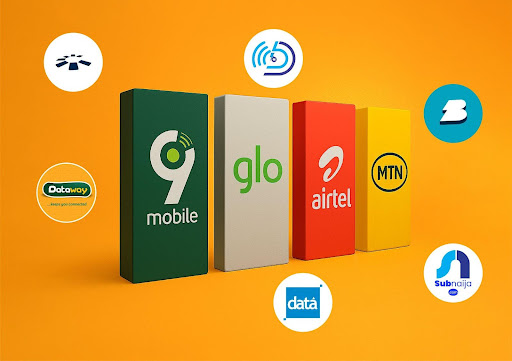By Destiny Uko
It is incredibly frustrating to receive notifications of data exhaustion, especially when the month is barely halfway through. Every megabyte truly counts, with data prices soaring and bundles shrinking. Often it’s not about heavy usage but rather small, habitual mistakes—many of them unknown—that cause your data to taper out faster than usual. These mistakes are avoidable with awareness and simple adjustments.
One prime culprit is background apps, which continue to run even after the phone is not in use. Without turning off auto-sync or clearing the cache after recent use, several social-media applications like Instagram and YouTube typically continue to consume data.
Putting off background data usage is as simple as the following:
Android: Settings > Apps > Select App > Data Usage > Disable Background Data.
iPhone: Settings > General > Background App Refresh and turn it off for non-essential apps.
Enabling automatic app updates over mobile data can Without prompting, your phone may update outdated apps in the background especially after each software update. Except you set it to update apps only when connected to Wi-Fi, you may lose hundreds of megabytes without even noticing.
To switch off automatic app updates, take these steps:
Android: Google Play Store > Settings > Auto-update Apps > Over Wi-Fi Only
iPhone: Settings > App Store > Turn Off Automatic Downloads
Streaming media in high resolution is another fast way to milk data. Platforms like YouTube, Instagram, TikTok, and streaming services default to HD if your network allows it. Video autoplay in streaming apps worsens the case further. Reducing video resolution and disabling autoplay are the simple way out.
To disable autoplay, take these steps:
Instagram: Settings > Data Usage > Use Less Data
Facebook: Settings > Media & Contacts > Autoplay > Never Autoplay Videos
X (formerly Twitter): Settings > Data Usage > Video Autoplay > Never
Another mistake many people make is simply not monitoring data usage. Without checking to know which apps use up the data, it becomes impossible to fix the problem. Your phone’s settings let you view data usage per app, and setting daily or monthly usage warnings helps prevent waste.
To achieve this, take these steps:
Android: Settings > Network & Internet > Data Usage
iPhone: Settings > Cellular > Cellular Data Usage.
You also waste data without knowing if you keep browsing without using data-saving browsers or Lite apps. Apps like Opera Mini, Chrome, Facebook, TikTok and Instagram Lite are designed to consume much less data.
Another often-overlooked habit is leaving mobile data switched on unnecessarily. Phones constantly search for network signals when users leave mobile data on while connected to Wi‑Fi or when they are not using the internet. MTN Nigeria’s guide on managing data urges users to turn off mobile data when not needed and rely on Wi-Fi for browsing data-consuming
Usage of hotspots or tethering without care is another causative factor. Sharing your data with laptops or other devices and forgetting to turn it off or regulate use may cause your data to drain in minutes.
Finally, not using offline options when available is injurious to your data. Many music, podcast, video, and map apps now allow offline download over Wi‑Fi. Using download options on streaming platforms like Netflix and Spotify can dramatically reduce your dependence on mobile data and keep usage controlled
Rapid data exhaustion and unexplained data consumption are pertinent to saving data and, by extension, money. Turning off background data, trying lite apps, disabling autoplay, monitoring data usage, and relying on Wi‑Fi for heavy downloads are necessary habits that should be observed daily to realise durable data life.
The article highlights common mistakes Nigerians make that lead to rapid exhaustion of mobile data, which is often unnoticed. Key factors include apps running in the background, which can be remedied by turning off auto-sync and clearing the cache. Automatic app updates using mobile data and streaming media in high resolution also significantly consume data. Users are advised to set apps to update only over Wi-Fi and reduce streaming quality. Additionally, failing to monitor data usage can lead to overconsumption; users should regularly check data usage per app.
Using data-saving browsers or Lite versions of apps, like Opera Mini and Facebook Lite, can help preserve data. Users often waste data by leaving mobile data on unnecessarily, especially when connected to Wi-Fi, or by sharing data via hotspots without proper management. Finally, utilizing offline download options available on many apps can further save data. Awareness and implementation of these strategies are crucial for extending data life and saving money.






